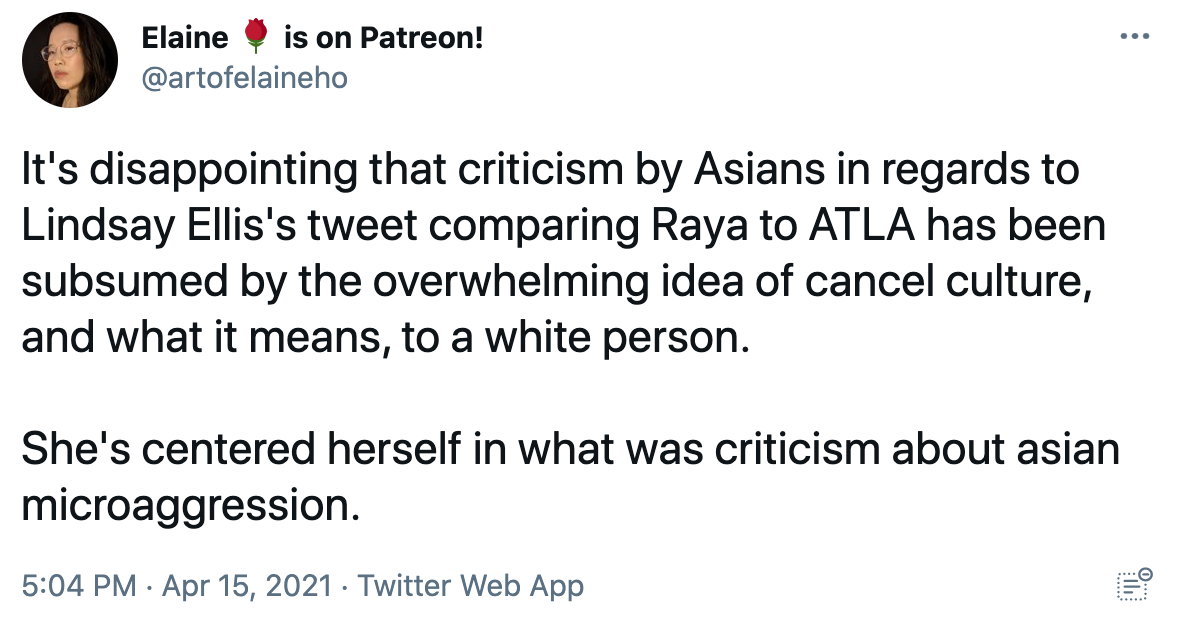Springfield, Ohio, and the political epistemology of lived experience
On the use and abuse of popularized philosophy by political hacks and hack politicians
Ohio Senator and Vice Presidential candidate JD Vance, like his running mate Donald Trump, has for the past week been advancing claims that Haitian immigrants in Springfield, Ohio have been eating people’s pets. The evidence provided for this claim has been, to put it incredibly generously, very weak. Yet when confronted about the weakness of his evidence by the media, JD Vance retreated behind his constituents. The media might think it’s false that there are no dogs and cats being barbequed, but according to Vance, his constituents know better. They, or at least a handful who have reached out to Vance, have alleged that this has happened. And regardless of the real data that actual journalists and researchers may have access too, this lived experience of Ohioans is what’s really important.
Lived Experience in Epistemology - a brief summary
The epistemological relevance of lived experience was emphasized by German phenomenologist Wilhelm Dilthey. Dilthey was aiming to sort out the epistemological basis of the human sciences, and rejected the frameworks of classical English Empiricism (as articulated by Mill) and Positivism (as articulated by Comte). These thinkers were working to reconstruct the human sciences along the lines of the natural sciences, which they saw as more rigorous and objective. Dilthey objected to this, as it ignores the complexity of the human subject and how it differs from other scientific objects. An electron has no apparent inner experience to concern the particle physicist, and it is at least theoretically possible to determine the causal properties of the electron by how it interacts with other bodies.
Yet human subjects resist such an obvious causal interpretation of their interactions. Human behavior is shaped by a complex psychology that is not apparent to the observer (and as Freud would later show, was not even obvious to the subject themselves!). As human sciences deal with human subjects with all their complexity, Diltehy argues, human sciences cannot simply replicate the methods of empirical natural science. As Dilthey states:
Only inner experience, in facts of consciousness, have I found a firm anchor for my thinking, and I trust that my reader will be convinced by my proof of this. All science is experiential; but all experience must be related back to and derives its its validity from the conditions and context of consciousness in which it arises, i.e., the totality of our nature.
Dilthey’s goal was to establish a real flesh-and-blood subject which proceeds from the “totality of our being” as opposed to the methodologies informed by natural sciences. Only then could the human sciences operate with a secure epistemological basis.
This notion of lived experience was later taken up by feminists, black philosophers like W.E.B. DuBois. The advantage of emphasizing lived experience for these thinkers was that mainstream empirical science had been talking about women and black people for some time, but had the bad habit of projecting its own prejudices onto their subjects instead of interrogating what women, racial minorities, and other marginalized groups thought or how they lived. The discourse around lived experience allowed them to push back against “scientific” claims that were weaponized against their communities by states, businesses, and political parties that opposed their interests and civil liberties.
Thus, the phenomenological and epistemological status of lived experience became a useful philosophical tool for marginalized people to be heard and to be treated as full human subjects. It gave these marginalized groups a conceptual structure to validate their grievances against academic and political institutions that spoke about and to them but not for them, at least not meaningfully.
The Politicization of Lived Experience
The danger was that the emphasis on lived experience could be vulgarized and made into a mere political weapon to advance narrow, sectarian causes. If at its best it helped oppressed groups speak for themselves, at its worst it validated a kind of radical, naive, and sometimes bad faith form of subjectivism where the individual knows what is true and this knowledge cannot be challenged with objective facts. It could, and did at times, become a weapon for people to advance their own personal or merely perceived grievances. These grievances were difficult to challenge as the truth of their lived experience exists beyond the realm of firmly-established empirical practices and shared notions of objectivity.
The paradigmatic example of a bad-faith application of this discourse in recent years is the cancellation of Lindsay Ellis, who had the temerity to draw an analogy between the children’s cartoon Avatar: The Last Airbender and the Disney movie Raya and the Last Dragon. Though she intended this as a parallel between their obviously similar plots, it was maliciously assumed that she was only equating them because both stories drew from Asian history, aesthetics, and mythologies. When she defended herself from this charge, she was accused of trying to invalidate the problem of anti-Asian racism and the experience of Asian Americans. Any defense she made against the charge was interpreted along this framework. It didn’t matter that various Asian folks defended her, or that many of those accusing her where white liberals, or that these two stories were clearly quite similar (even down to their titles). All that mattered was that she was denying the alleged content of some oppressed person’s “lived experience”.
The Claims of Constituents in Springfield, Ohio
What does all this have to do with Haitians in Springfield, Ohio? Well, like other marginalized groups, poor semi-rural Americans in the midwest have been largely left behind by processes of deindustrialization and dehumanization. The so-called “coastal elites” who dominate media, business, and politics in the US have treated such populations as vote banks while implementing policies that left these communities behind. Thus, their own “lived experience”, as it were, was no longer being granted any attention by the institutions that determined their fate.
Thus, these communities became increasingly aggrieved and angered by the way their communities were disregarded. They wanted to be heard, and wanted policy makers to implement programs that might actually address their needs. They wanted elites to stop using statistics about economic growth and jobs numbers to tell them that their lives were good, actually, when they knew from their "lived experience that their communities were suffering real hardships.
Into the mix, a number of Haitian migrants arrived to Springfield Ohio over the past decade and a half. These migrants, many of whom were in the US legally under TPS (temporarily protected status, a type of residency afforded to people fleeing countries in a state of chaos), moved to Springfield because of its combination of industrial jobs and cheap housing (thanks to the deindustrialization and depopulation of these towns).
Of course, an influx of migrants into a community often causes an increase in xenophobic attitudes against the newcomers. In its most extreme form, these xenophobic attitudes are based on prejudice, half-truths, and outright lies about the character and behavior of the newcomers. These xenophobic attitudes mix with legitimate concerns and grievances, such as the way an influx of people will drive up rent in small communities, or overburden schools that had previously been downsized due to an earlier depopulation, or expose people to unfamiliar cultural norms which they are totally unaccustomed to.
Into this toxic mix came the rumor on social media that some Haitian allegedly ate a cat. A video emerged too of someone being arrested after killing a cat, though this person was not a Haitian in Springfield but an African American in Canton, Ohio. Once this rumor spread, JD Vance began telegraphing the claim before Donald Trump repeated it on the debate stage.
Since the claim was debunked, JD Vance has retreated behind the people of Springfield Ohio, stating that his claim came from "the first-hand accounts of my constituents." He reframed the pushback by the media as an attempt by the media to not only ignore the legitimate grievances of Ohioans, but delegitimize and attack them. In effect, the due diligence of the media was transmuted by JD Vance into a form of elaborate gaslighting of the people of Springfield Ohio.
Moreover, he continued to insist that these migrants were “illegal immigrants” even if they were here legally under TPS. The point was that some handful of his supporters perceived the Haitians as illegal, even if they were in fact in the US legally. Due to the way some media outlets frame any nonwhite immigrant as illegal, there is a tendency to perceive them that way. One might object that Haitians ought not be given TPS, but even if that is one’s opinion they are in fact here legally. Yet the legal reality around these Haitians was irrelevant - the only thing that was important was the perceptions of Vance’s constituents.
Of course, it’s important to state that these arguments are being made with little input by the people of Springfield, Ohio. They are not the ones on national television making any of these claims. Instead, it is Vance and Trump claiming that these are the claims of these constituents. Politicians from Springfield, Ohio (as well as the state’s republican governor) have denied these claims, which suggests that many of Vance’s “constituents” in Springfield do not agree with the claim. Erika Lee, the individual who intially posted the rumor on social media, came out and apologized and said she had no ill will against the Haitian residents of her town:
“If I was in the Haitians’ position, I’d be terrified, too, worried that somebody’s going to come after me because they think I’m hurting something that they love and that, again, that’s not what I was trying to do.”
Yet Vance continues to claim that his constituents have raised this issue with him, facts be damned. Even if these residents have pulled back their claims, Vance continues to state otherwise (it is worth noting that some of the residents who have not pulled back these claims are members of the neo-nazi group “Blood Tribe”, putting Vance in pretty bad company).
Thus, we see a weaponization of the fears and anxieties of some group of midwestern working class Americans. We also see the politicization of their “lived experience”, whether or not the judgements being made from their standpoint have any actual truth in them. The facts of the matter aren’t relevant, only the alleged perceptions of individuals.
I would argue that such an emphasis on lived experience at the expense of objective fact creates a certain kind of subjectivist fallacy. With this fallacy, the marginalized subject has some kind of privileged knowledge or fact of the matter, and this fact of the matter is beyond rational scrutiny. Subjecting the factual claim to any kind of analysis is delegitimized as somehow speaking over and silencing an oppressed or marginal subject, which perpetuates the silencing and oppression of this subject (needless to say, it is deeply ironic and tragic to use such a discourse to demonize Haitians, a population which has been served the worst possible hand by French and American colonialism and neo-colonialism, to say nothing of natural disasters like earthquakes and hurricanes).
Of course, politicians ought to consider the lived experience of working class people in Springfield, Ohio, just as they consider the lived experience of racial minorities, women, and so on. But the alleged statements of constituents does not override the objective facts of the matter. Lived experience must correspond to some kind of objective reality to be meaningful in any kind of political or normative sense. Either a cat was eaten or it wasn’t, regardless of one’s perception of the matter. Either a migrant is legal, or they’re not.





